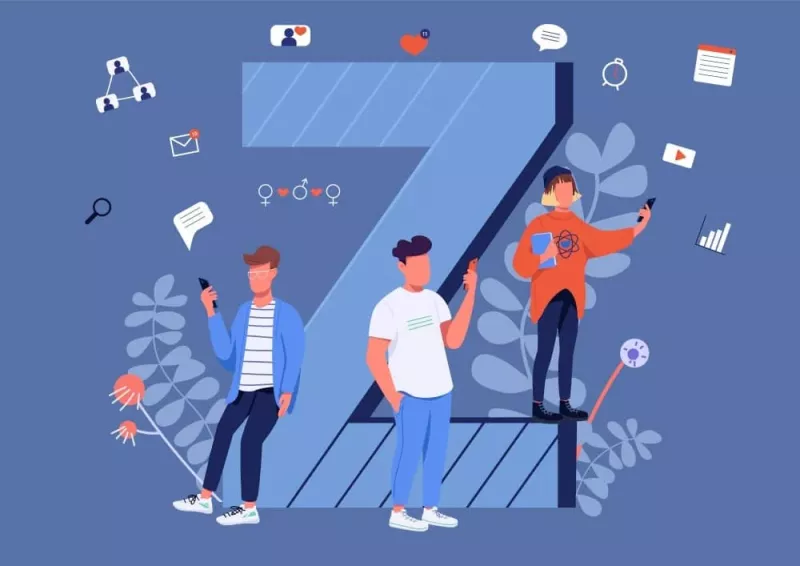We all have environments, upbringing, education, exposure, beliefs and ideologies that are unique to us, and it is very unlikely that people will behave a certain way just because they are from the same generation. There’s so much hullabaloo about the Gen-Z workplace culture on social media. They are said to be the generation that doesn’t give a hoot about how the world should or shouldn’t work – yea, it’s been like this, but no, we’re not doing the same. Then they’re the emboldened generation that isn’t scared to say what’s in their mind.
Remember Bubu has been a bad boy? They aren’t scared of taking risks too – doing unconventional things and failing repeatedly until they eventually succeed. Then when we talk of their work culture, they’re the ones who give bosses the most wahala. They’re big on mental health, so no, you won’t kill them with work because of a mere 100,000 naira salary. If you stress them too much, they’d pack their kaya and leave. A screenshot of an email circulated on Twitter. In it, this Gen-Z employee, a student who was about to resume school after ASUU called off the strike, wrote to his line manager: “oya sope otilo” – a common slang meant to show he has left the company.
No proper resignation. Nothing. People ki-kied; this Gen Z shaa. In another email, a Gen-Z employee told his employer that he couldn’t turn in his work – after the deadline had elapsed. Reason: he was tired and he’d decided to prioritize his mental health over the job. He cannot coman goan die. Again, some people ki-kied.
Emails/texts like this are everywhere on social media – proof shows that this generation is different from the ones that came to the world before them. _ There’s a way social media, especially Twitter, hyper-focus on certain narratives of people, places, and situations. There are conversations on the same things over and over again until it becomes a single story. So here goes: Gen-Zs are fearless, and give a damn about nothing, if you talk to them anyhow, they’ll give you wotowoto, they are free from the culture of work till you drop, and they do not give a hoot about rules. They abide by their own rules. At least, these are the things I pick from Twitter.
Let me be honest, I am tired of these conversations about Gen-Zs. Not just because these conversations are often had to diss millennials who love hard labor, were raised to cower, and are too scared to voice out or reject something that isn’t good for them but because these conversations do not truly (and entirely) reflect the reality of Gen-Zs off these social media apps. The Gen-Zs I know is not shielded from cultural oppression, workplace toxicity, or life living – as the case may be. In this country where the economy dey carries us to go where we no know, sapa is flogging them day and night, and like everyone living on the surface of the earth, they are working hard to make ends meet. The Gen-Zs often spoken of on social media are probably trust-fund kids who have something or someone to fall back on should situations get too tough. The ones in real life? They’ve got black tax to pay, mouths to feed, bills to settle, and their future to think about.
They’ve got to work their way up, so no, they cannot just wake up one day, look at their employer and give them wotowoto. Or prioritize their mental health over work (which is important by the way). Or cross their legs on tables, pressing phones while a deadline approaches. I’ve never met any Gen-Z that moves the way they’re painted to be on social media, so where is this narrative coming from? _ Overgeneralization and stereotyping will always be a problem, especially on social media where perceptions are shaped.
We all have environments, upbringing, education, exposure, beliefs, and ideologies that are unique to us, and it is very unlikely that people will behave a certain way just because they are from the same generation. There’s a certain dishonesty to these takes and then a romanticization of these supposed Gen-Z work cultures on social media. The idea that this generation of people have so much work freedom that they can just waltz in and out of a job because “it’s not for me abeg or the stress is too much” is thrilling, amusing, and even covetable. But I cannot fail but notice how it’s doing them a disservice.
An employer on Twitter jokingly mentioned he could never employ Gen-Zs because from what he’s seeing, they aren’t ready to put in the tough work or stick around for long. What do they say about jokes again? Are these conversations a reflection of Gen-Z’s real world? Do they really have that work freedom? As a Gen-Z, can you afford to walk in and out of a job because “it’s not for me abeg, or the stress is too much?” Are they immune to the restrictions or oppressions or stress that rule the world? Is social media painting them all with the wrong brush?




